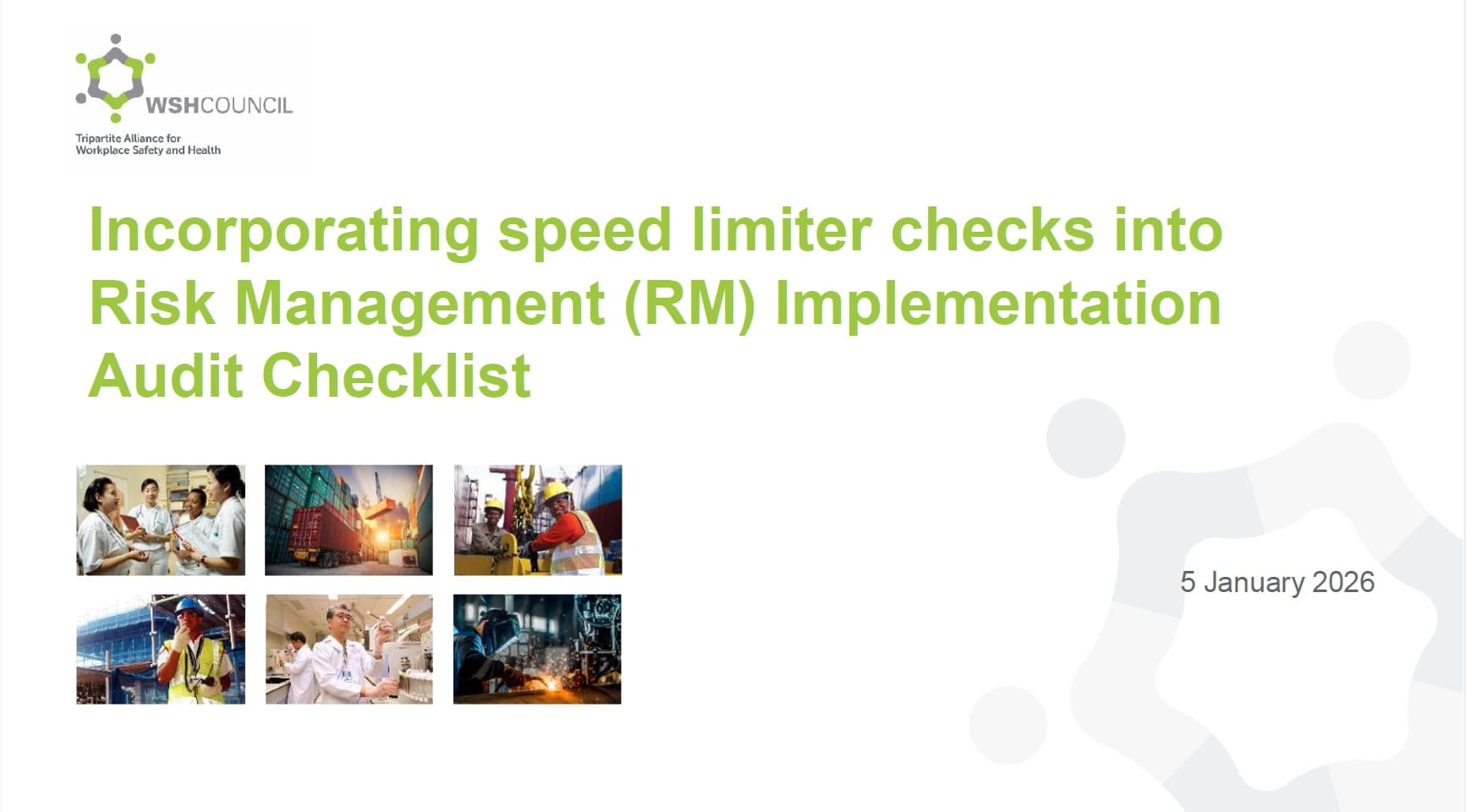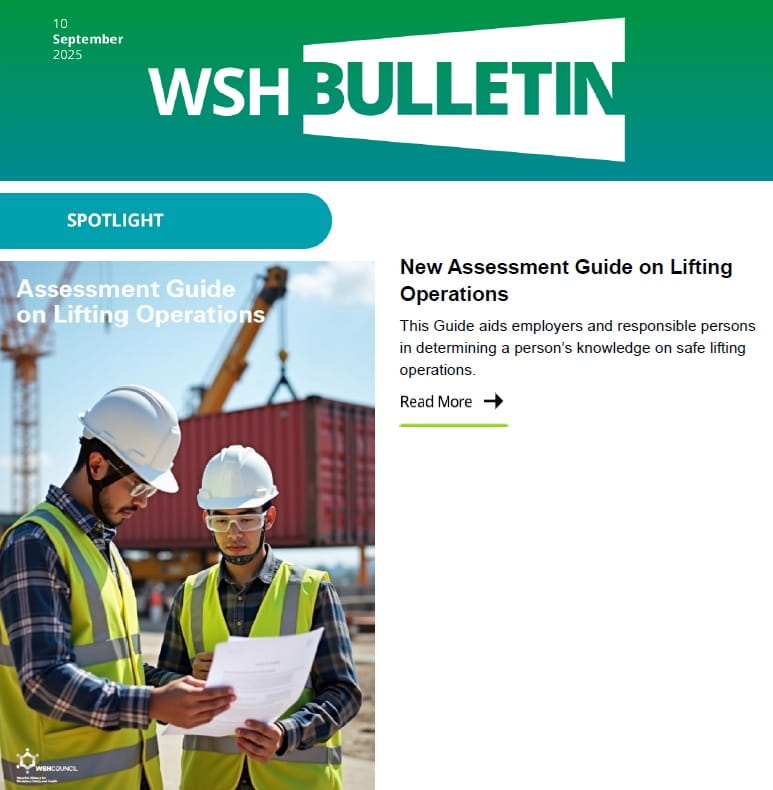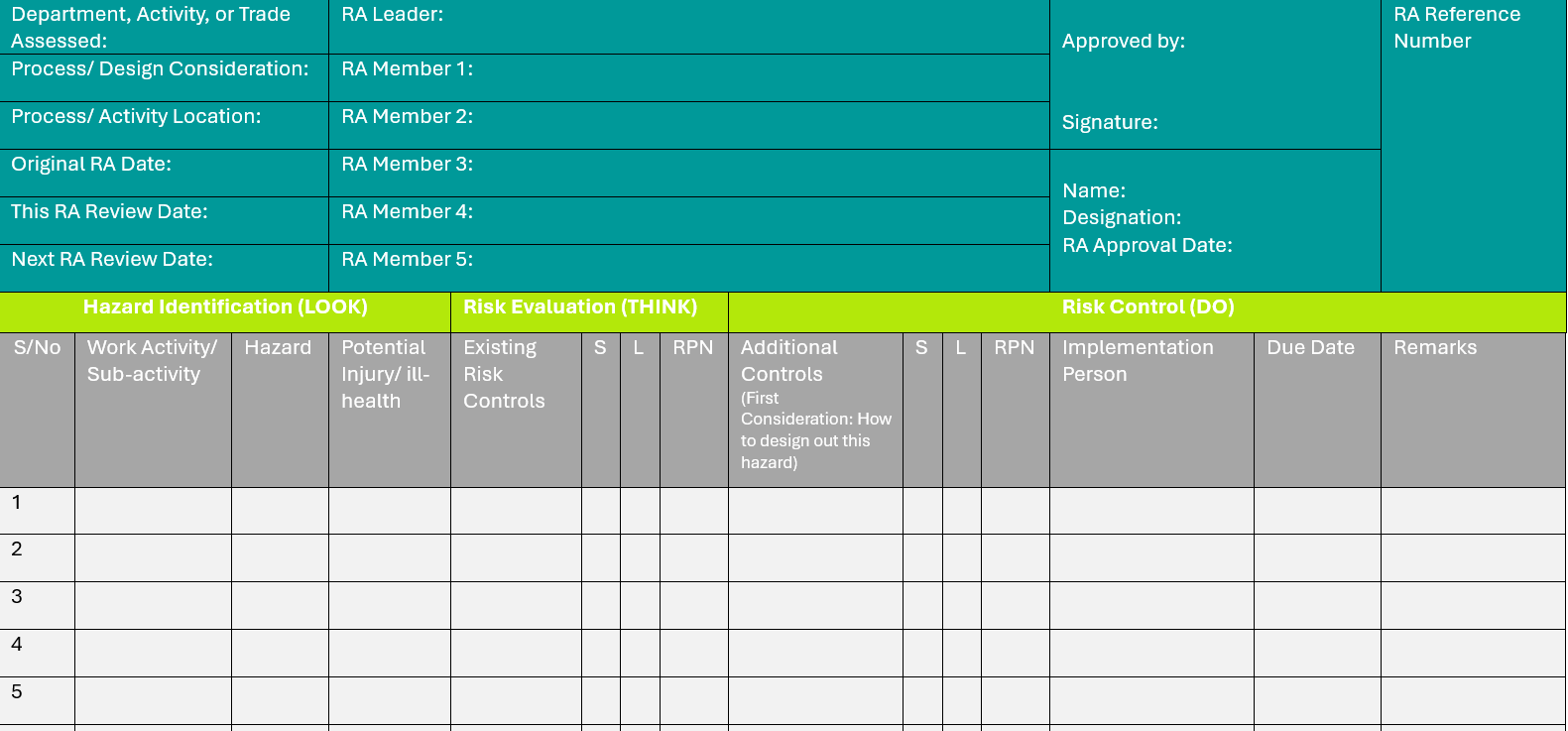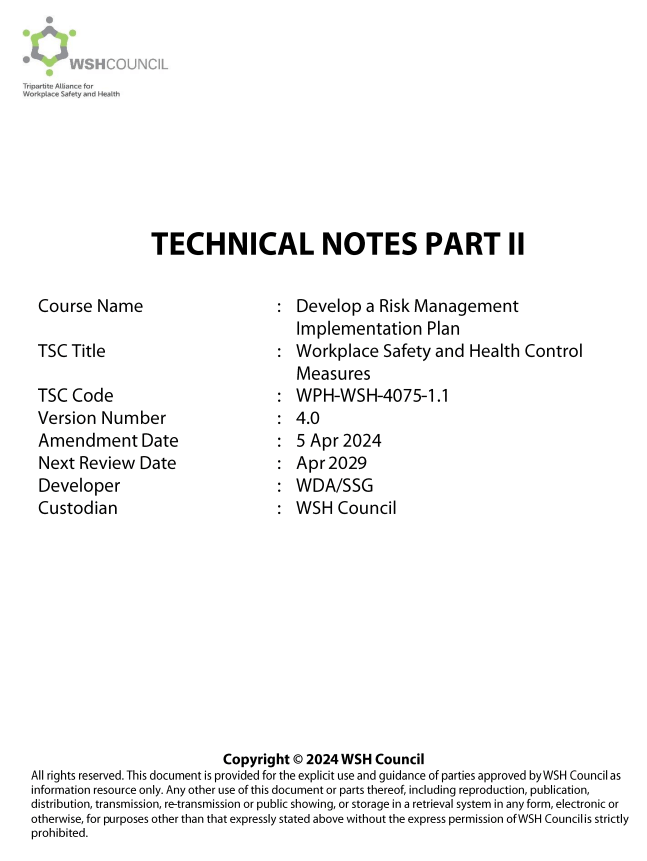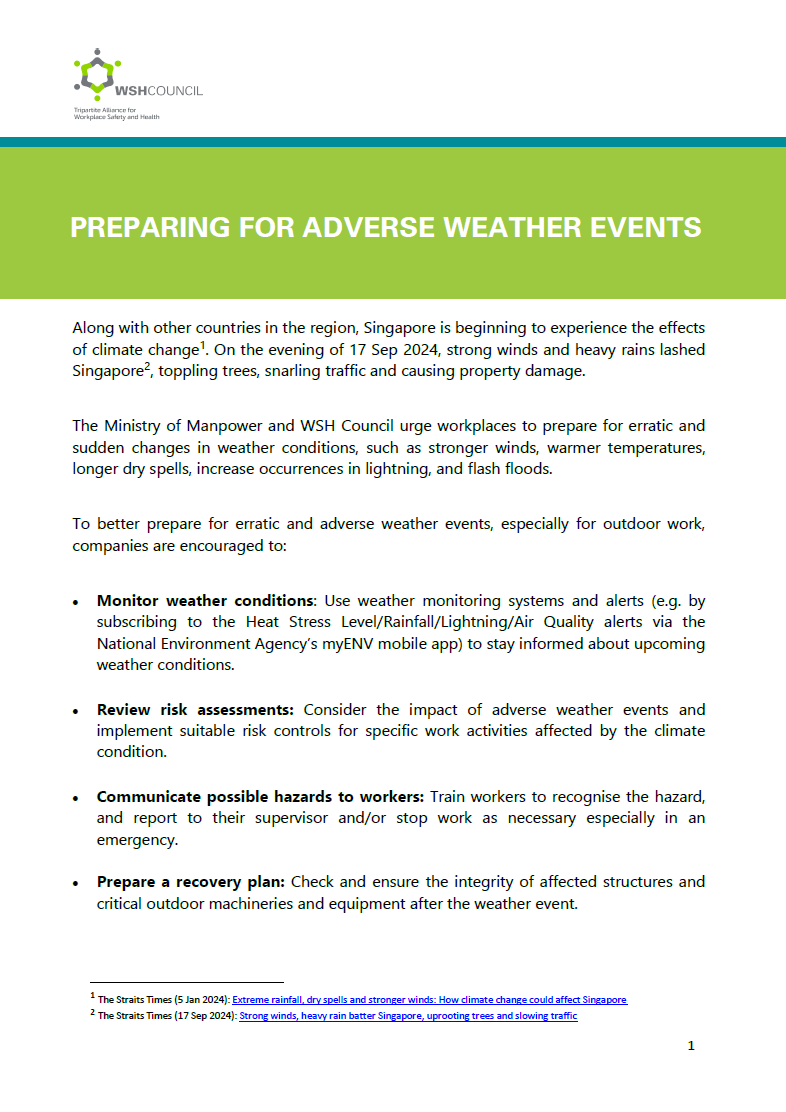About Risk Management
Learn the definition for risk management. And find out about related laws and industry standards.
Definition: Risk Management
Risk Management (RM) is a systematic way of:
- Identifying, assessing, controlling and monitoring workplace safety and health (WSH) risks associated with any work activity or trade.
- Communicating these risks to employees, contractors and other relevant parties.
Risk Management Process
The main components of RM include preparation, risk assessment, risk control implementation, record-keeping and review. Refer to the Code of Practice on WSH Risk Management (PDF) for more information.
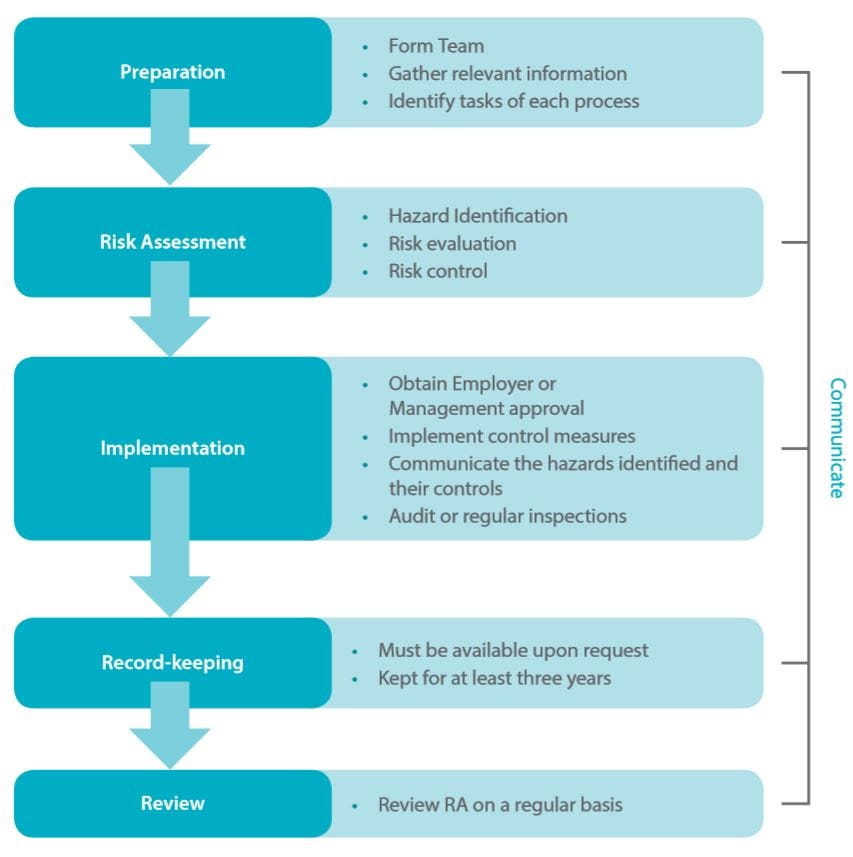
Above: Risk management process
Laws and Industry Standards
As an employer, self-employed person or principal (e.g. contractor, subcontractor), you are required to conduct regular risk assessments (RAs) to identify and address WSH risks in your company. You are also expected to comply with Singapore's WSH laws, and pay particular attention to:
- WSH (Risk Management) Regulations
- WSH (General Provisions) Regulations
- WSH (Safety and Health Management System and Auditing) Regulations 2009
In addition, you should observe relevant industry standards, such as:
- Code of Practice on WSH Risk Management (PDF);
- SS ISO 45001: Occupational health and safety management systems - Requirements with guidance for use; and
- CP 79: Code of Practice for safety management system for construction worksites.
Please refer to the WSH (Approved Codes of Practice) Notification for the full list of approved Codes of Practice.
bizSAFE Certification
bizSAFE is a nationally recognised capability building programme designed to help companies build workplace safety and health capabilities.
All workplaces must conduct risk assessments for all work activities and processes under WSH (Risk Management) Regulations. These risk assessments must be reviewed as and when the work activities change or every 3 years, by law.
bizSAFE Level 3 and above recognises that your company has put in place systems to manage workplace risks and complies with WSH (Risk Management) Regulations. To achieve this, you must engage a Singapore Accreditation Council (SAC) Accredited Auditing Organisation to assess the implementation of risk management in your workplace using the bizSAFE Level 3 Risk Management audit checklist.
Please read more about bizSAFE, and learn how it can benefit your company and you.

